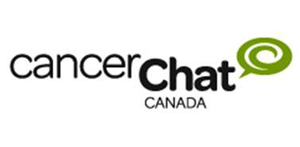Lessons learned from CancerChatCanada surprised experts
Evaluation published in Current Oncology
June 19, 2013
 They set out to create a way for people living in rural areas, or with less common cancers, to learn from each other through scheduled live online chats – typing, not talking – with a professional facilitator as part of the group. That’s how CancerChatCanada began.
They set out to create a way for people living in rural areas, or with less common cancers, to learn from each other through scheduled live online chats – typing, not talking – with a professional facilitator as part of the group. That’s how CancerChatCanada began.
“We expected that it would not be as good an experience as face-to-face groups,” says Dr. Joanne Stephen of the BC Cancer Agency. “We thought it would be better than nothing, but we totally didn’t expect that it would be as good an experience as it turned out to be.”
“What we’ve come to realize is that there are unique characteristics of live chat that for some people, for maybe a lot of people, make it actually better than face-to-face. For a lot of people the online experience makes it OK to participate – it makes them feel more brave perhaps – and it’s more private.”
Measuring the impact
Dr. Stephen is a clinician scientist with BC’s provincial Psychosocial Oncology Program. Her team reviewed chat transcripts and interviewed more than 100 of the 351 patients, survivors and family members in the 55 online support groups.
Convenience and privacy were cited as key benefits and 80% reported they were satisfied or very satisfied with the experience.
“I think what surprised me the most was how emotionally connected and how dynamic and actually exciting it is to be in these live groups. I think everybody felt it would be kind of empty – you’re just typing,” says Dr. Stephen.
“But people very quickly connect and they share things that are very important and personal very quickly. As a result it’s actually very emotionally and experientially vivid.”
Support groups without borders
As well as being particularly well-suited to some people’s personal communications preferences, the technology allowed people to share experiences with others in similar circumstance – age group or cancer type – even when there were few others in their local area.
“We started this initiative knowing that we need to have support groups without borders,’ says Dr. Stephen. “There are many, many breast cancer support groups and to some degree you find support groups for folks with prostate or colorectal cancer. But for almost everybody else they are really hard to find. We needed to collaborate to be able to create that resource.”
Inter-jurisdictional cooperation key – past and future
Seven cancer centres in five provinces – BC, Alberta, Manitoba, Ontario, and Nova Scotia – collaborated to create and facilitate the support groups. CancerChatCanada launched in 2010 funded by the Partnership, the Canadian Breast Cancer Foundation and the Canadian Institutes for Health Research with the cancer centres contributing the time of the professional facilitators running the chats.
“Our cancer agency partners are committed. They have invested quite a lot of in-kind time,” says Dr. Stephen, noting that the counsellors are staff members at the collaborating cancer centres. CancerChatCanada has also formed partnerships with Ovarian Cancer Canada and the Leukemia and Lymphoma Society of Canada.
CancerChatCanada is transforming an ongoing project into a service. Formal agreements are being put in place to expand its reach using facilitators from across most of the country and some groups will be offered in French beginning in the fall of 2013.
Find out more
- Read Evaluation of CancerChatCanada: a program of online support for Canadians affected by cancer in the journal Current Oncology.
- Visit CancerChatCanada.ca for information on participating in a live chat group or to find out more about participating in the program as a health professional.
- Find out more about the Partnership’s work to improve the cancer journey by embedding a person-centred perspective.
